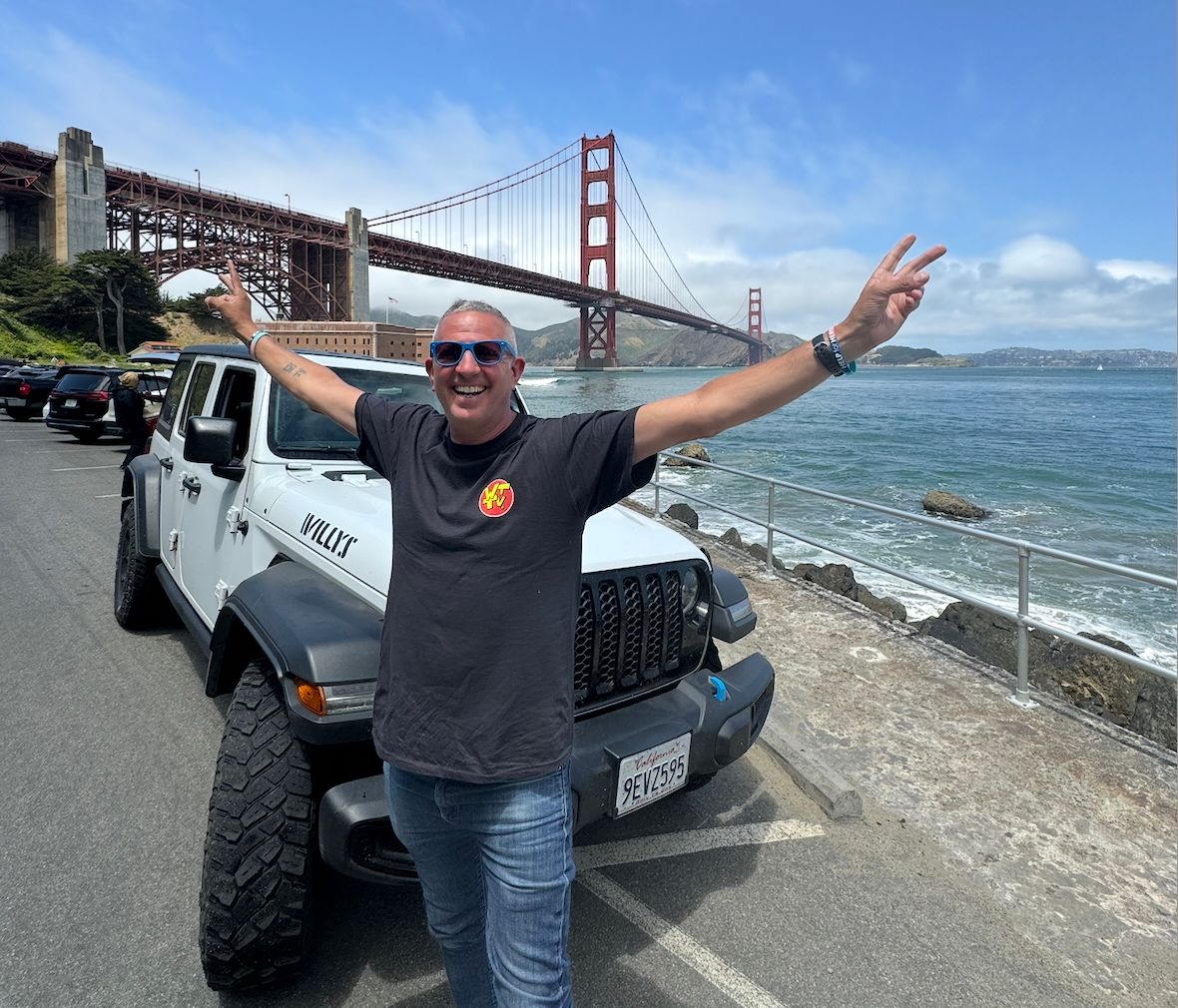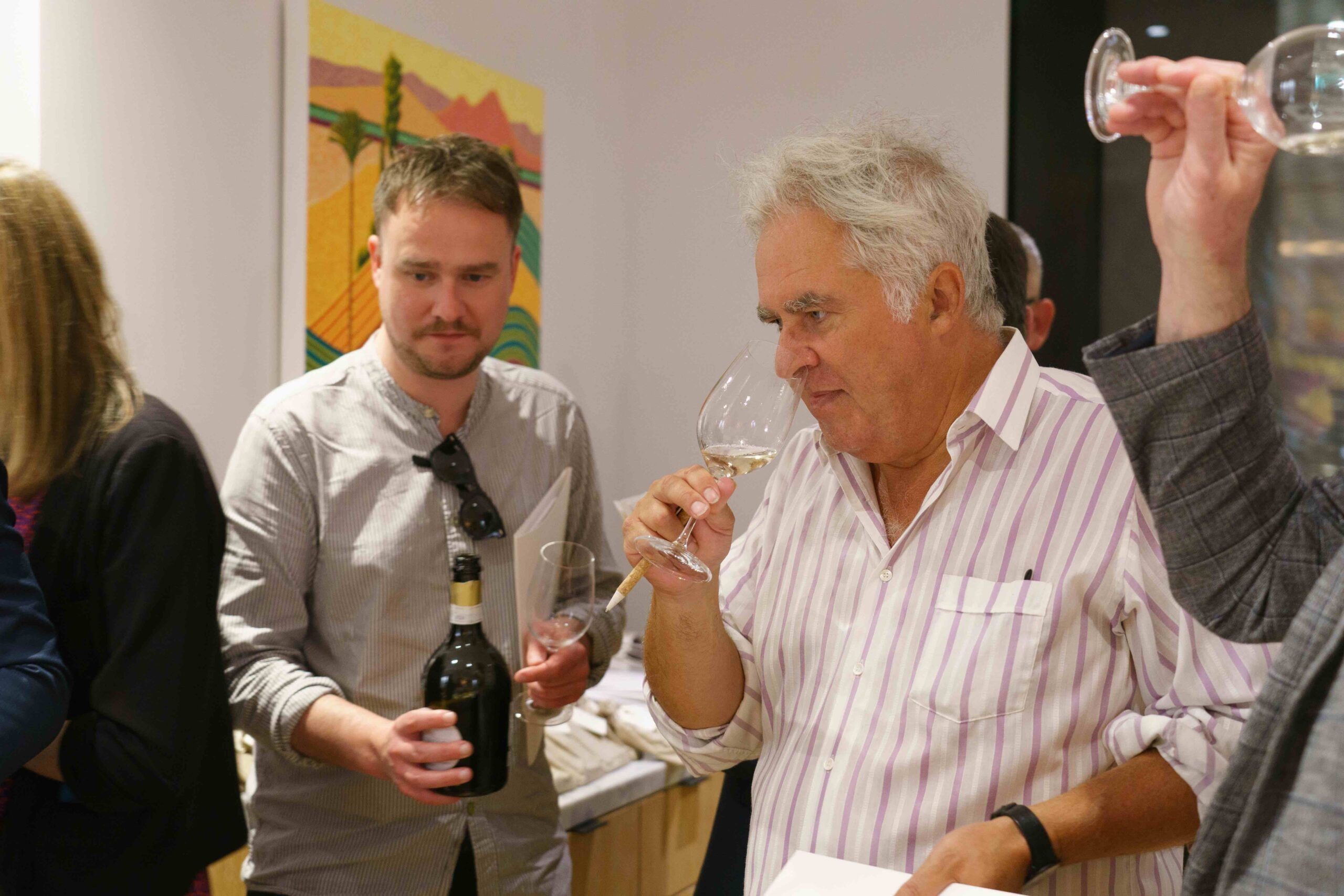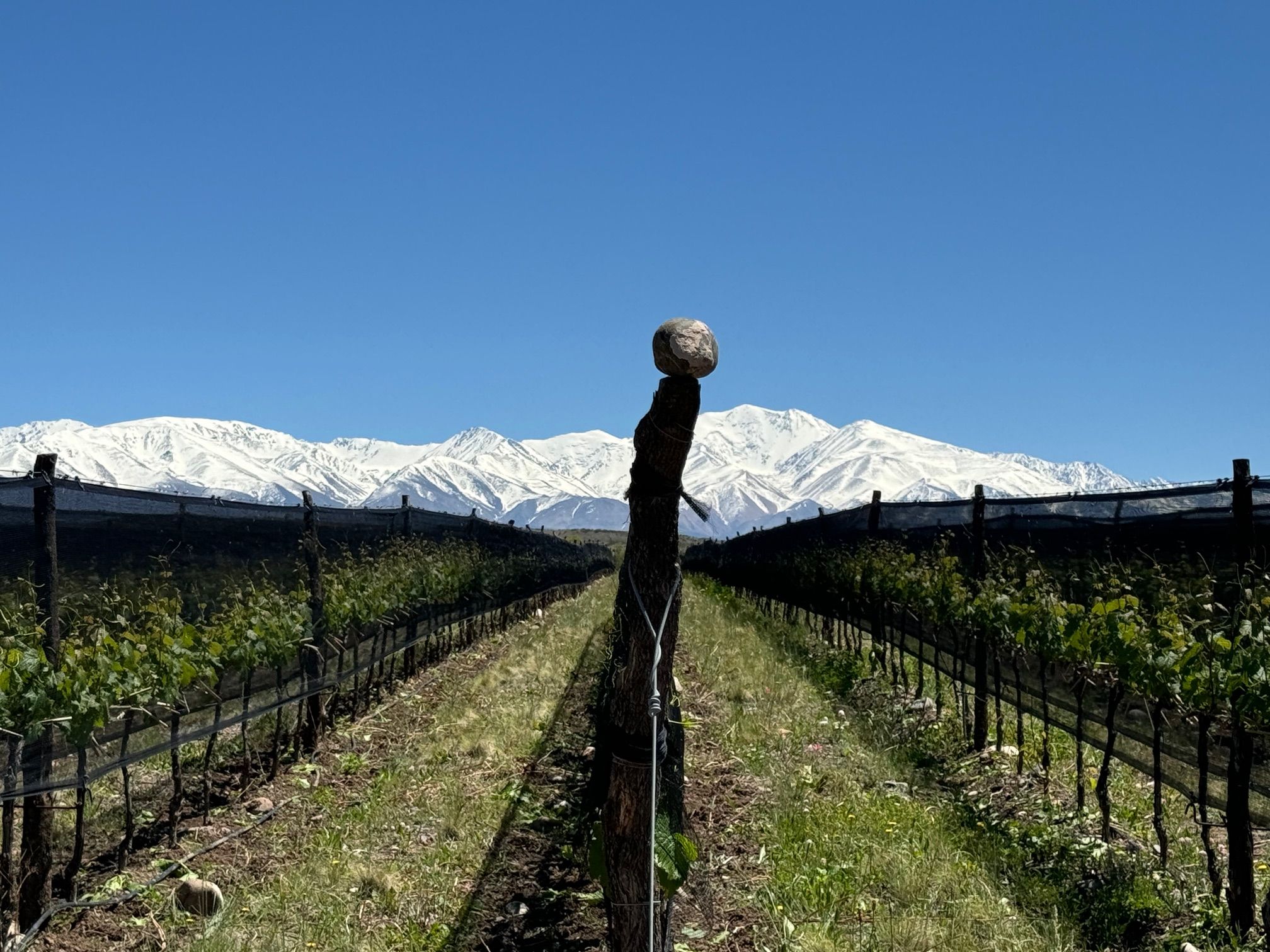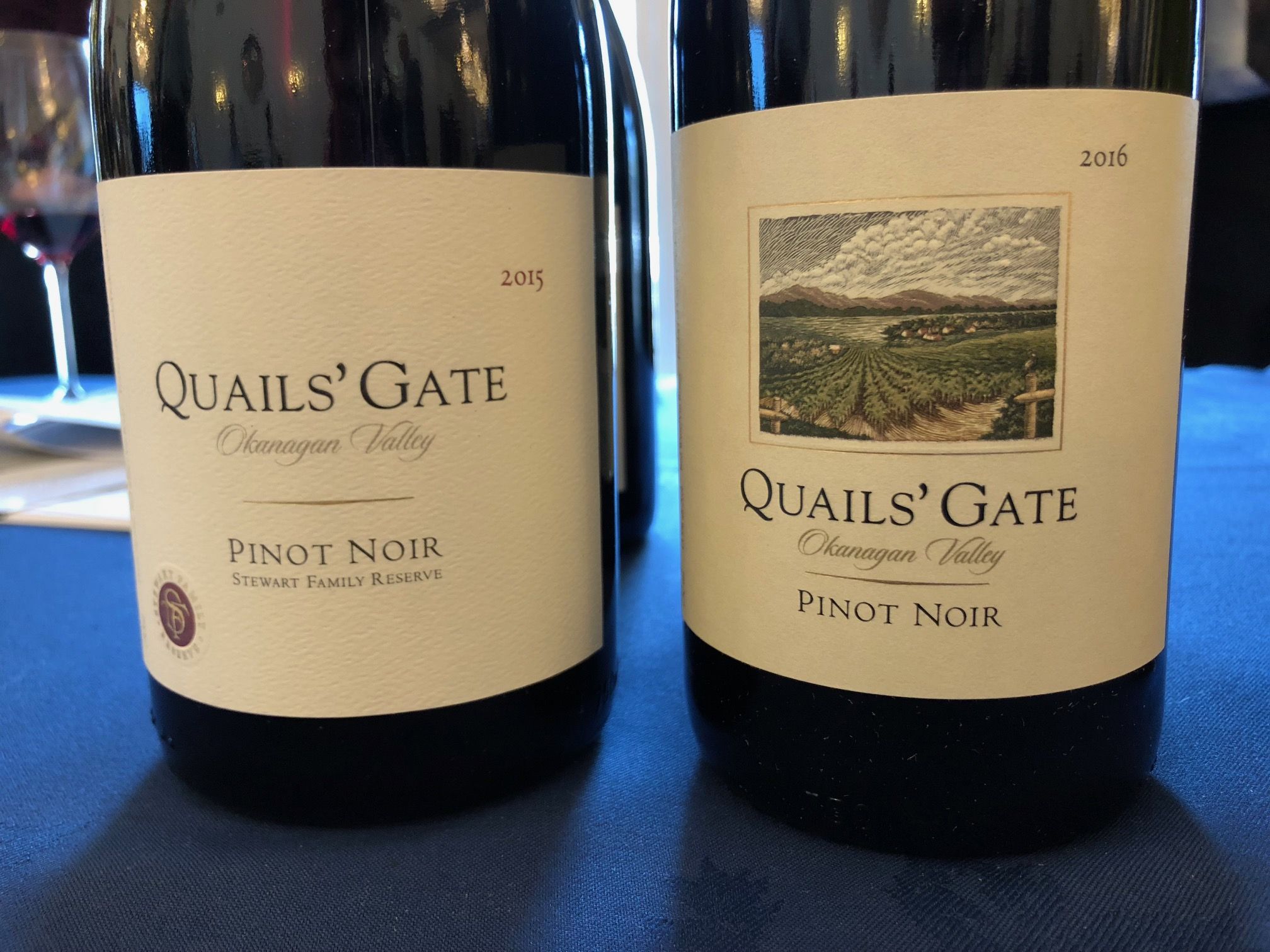Tell us about the set of educational videos you have made about winemaking around the world?
The series of five documentaries focuses on sustainability in the wine industry, but the inspiration actually came from a different place. Growing up, I loved David Attenborough - my copy of Life on Earth was thumbed to tatters, and the TV series have that sense of globetrotting adventure, he’s in Antarctica one minute then the Amazon the next.
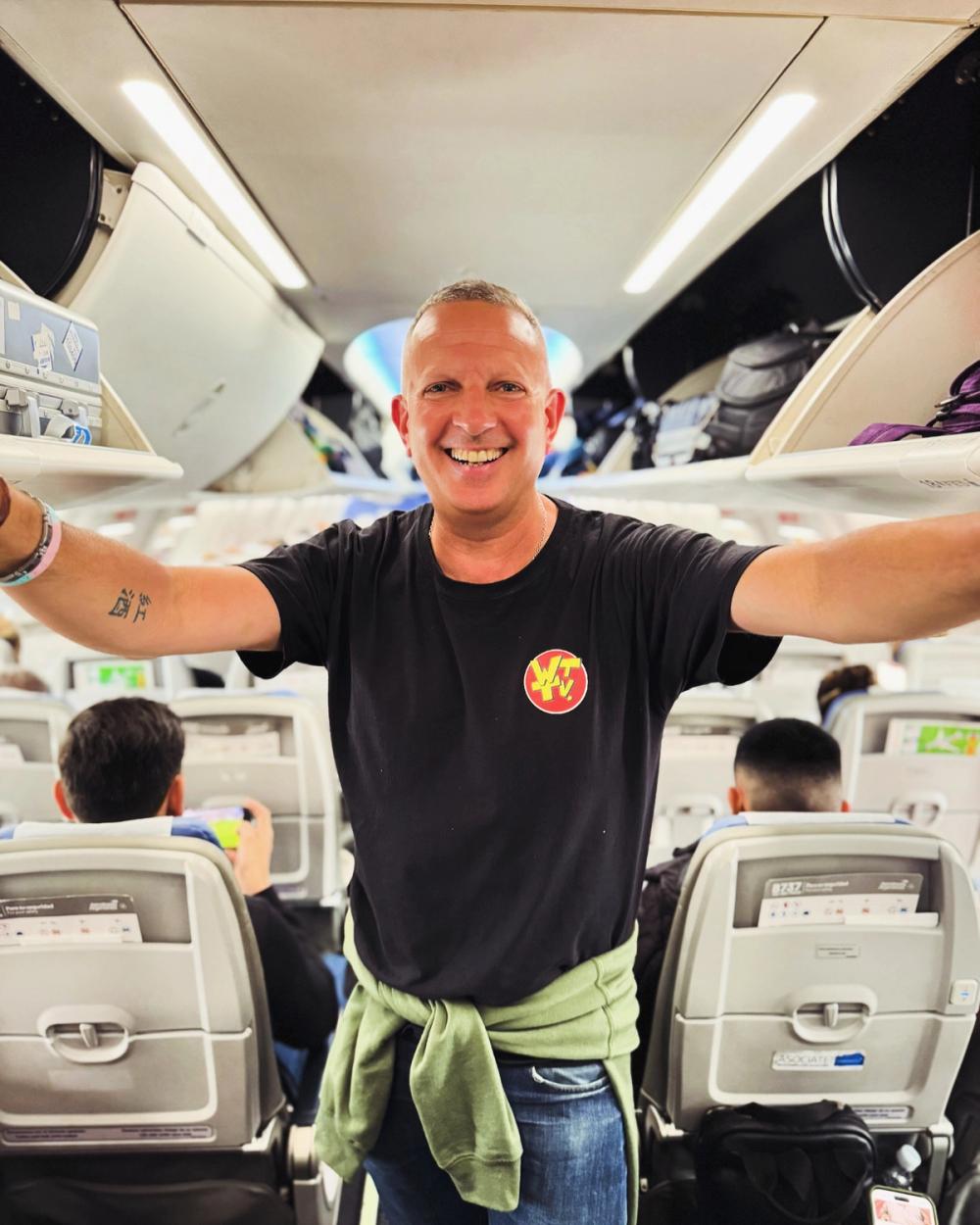
Tim Wildman MW says it took two years to put together the six films that showcase the steps producers are taking around the world to pioneer sustainability practices
That kind of approach is what we encourage Master of Wine students to take in their essays: comparing real-world examples from different countries, regions, and wine styles to develop critical analysis. That global perspective was the original inspiration for the ambition and scope of these films.
A lot of wine content tends to be hyper-focused - one winery, one region, or even just studio-based tastings. We wanted to break that mould and take a truly global view. The challenges of climate change and sustainability are universal, but solutions are often found locally. So, much like Attenborough’s style, we travel from Mendoza to Napa, from Châteauneuf-du-Pape to the Douro Valley, exploring global issues through diverse perspectives.
Teaming up with cinematographer Ben Dowie, whose day job is making Netflix documentaries, allowed us to merge high-level wine content with premium TV production values—something rarely seen in wine films. In a way, you could call this our Blue Planet for wine.
While the films do include insights for MW students, that makes up only about 5% of the content. They’re designed to be engaging for anyone with an interest in wine. We believe they are among the most ambitious wine documentaries ever made.
You are focusing in on sustainability and regenerative farming - why did you want to make that the central theme of the project?
Wine is unique among agricultural products for two reasons: first, every bottle has a specific post code on the back label. There’s no other beverage with such a strong geographic identity. Second, we have the consumer’s attention. People read back labels, attend tastings, and, hopefully, watch wine films. They pay attention to wine in a way that they simply don’t to a bag of carrots. That gives us a rare opportunity to communicate important messages about farming, climate change, and sustainability.
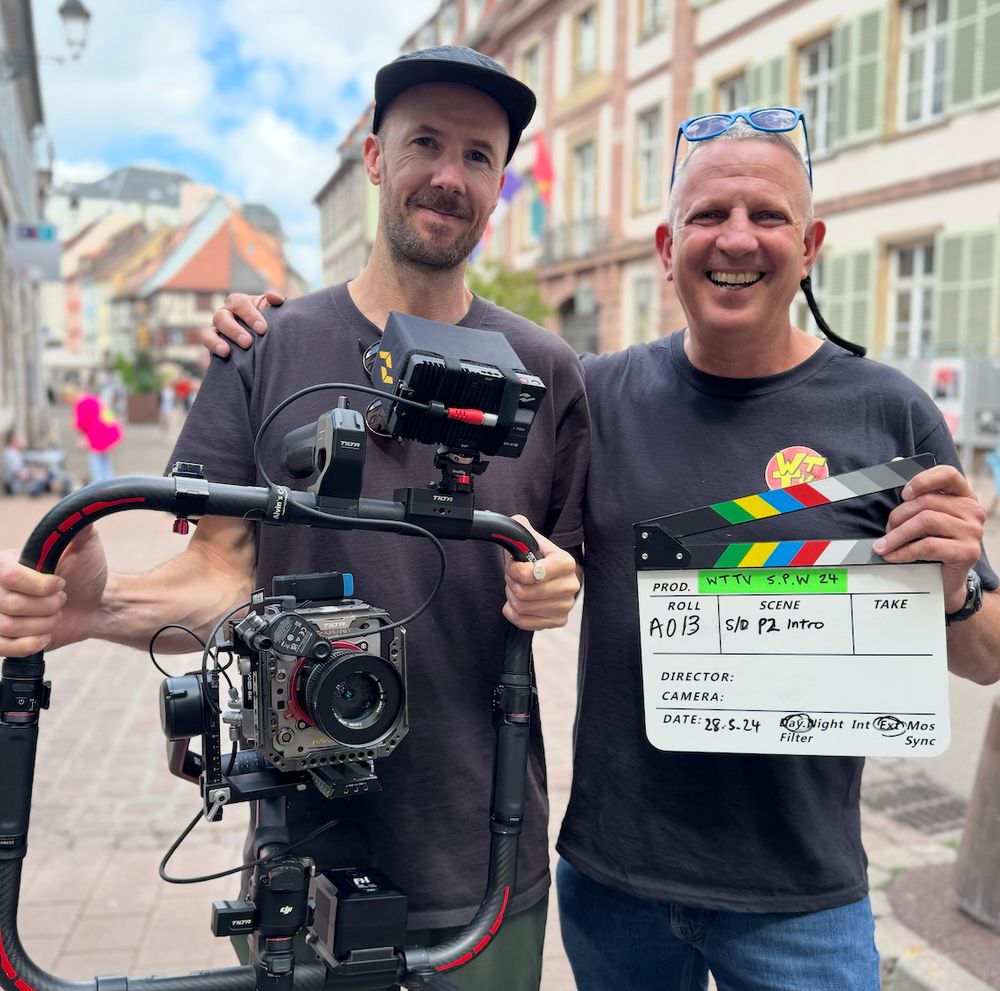
Tim Wildman MW and cinematographer Ben Dowie worked hand in hand for two years to bring the six sustainability films together
Vineyards are on the front line of climate change, both as a barometer of climate change in how they grow, and as a reflection of its impact on the grapes and wine they produce. Yet, despite the urgency of the issue, there was surprisingly little in-depth film coverage on both the challenges and solutions.
Our goal was twofold: to inspire producers by showcasing best practices from around the world and to document a pivotal moment when many wineries and regions are actively innovating in real-time.
What do you hope they can achieve and who are they aimed at?
We wanted to capture the full scope of sustainability across the entire wine value chain - wineries, logistics, distribution, and consumer trends. The pace of change is rapid, which is why we called the series ‘Sustainability: Countdown to 2030’. Many companies have ambitious 2030 targets, and we wanted to document the progress as it happens.
Speed was also key to our production. We filmed across six countries in just two months (May–June 2024), then spent four intense months editing to release the films by November 2024 - an unheard-of turnaround in the film industry.
The films are made for a wine-interested audience, with some deeper insights sprinkled in for MW students. We don’t dumb things down, you have to pay attention, but we trust our viewers to be curious and engaged.
Tell us about the film making process and how you pulled the programmes together?
This project took two years of effort and was entirely self-funded at the start. From the beginning, we set out to feature 12 wineries across six countries to ensure a truly global perspective. While securing funding from wineries was necessary to cover costs, it was never about simply holding a cheque book auction - we were selective about working with wineries that had meaningful sustainability programs.
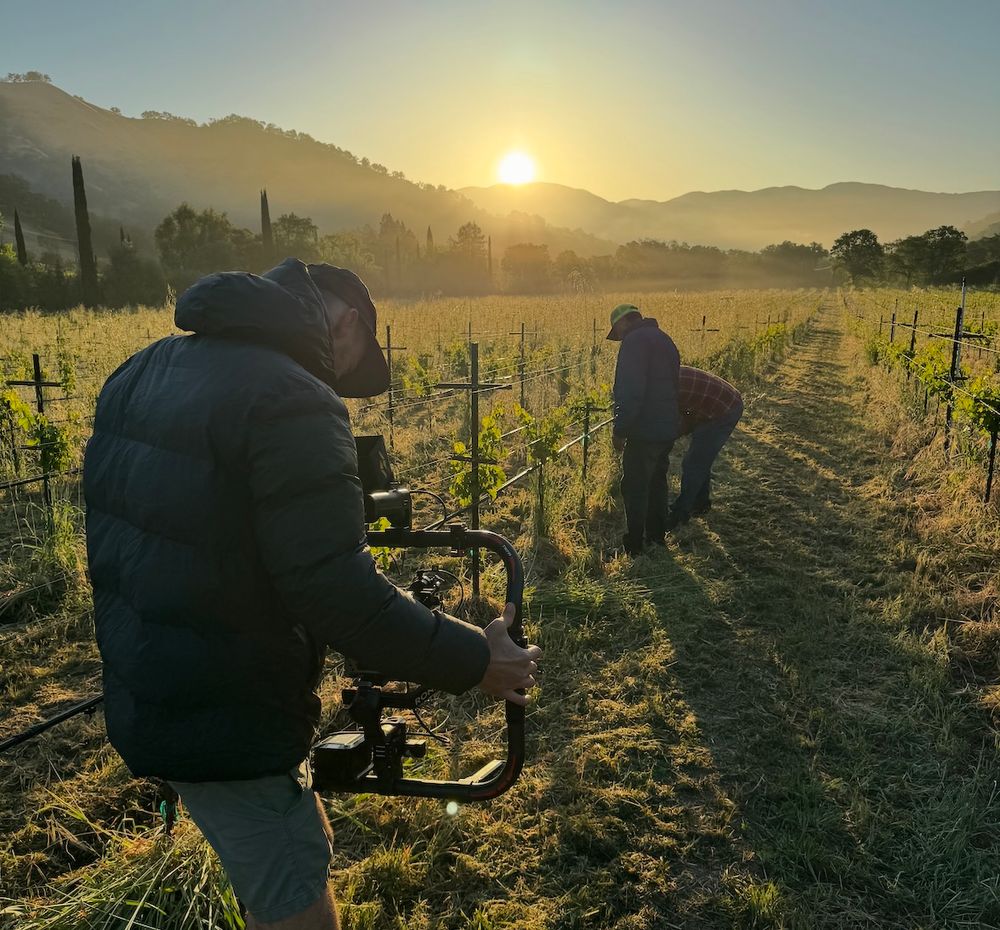
The sustainability films can hopefully inform, educate and inspire other producers to take action says Tim Wildmn MW
The funding process was tough. There isn’t much discretionary marketing spend in the industry right now, but I believe in the “Tinkerbell Principle” - things exist because people believe in them, and sometimes you have to talk that belief into existence. It took persistence, but after two years, we secured 12 pioneering wineries that truly represent the cutting edge of sustainability.
How many films have you made and what are the themes for each one?
The series consists of five films, loosely structured around the five MW theory papers, covering the full value chain from vineyard to consumer:
The Future of Farming: Climate change impacts, organics, biodynamics, and regenerative viticulture.
The 21st Century Winery: Energy, water use, resource management, and a behind-the-scenes look at the new, groundbreaking Château de Beaucastel winery.
The Glass Paradox: Lightweight glass, alternative packaging, and the environmental case for bottle reuse.
Does Green Pay?: The economics of sustainability, circular business models, certification systems, and financial sustainability.
Sustainability 2030 & Beyond: Greenwashing, consumer trends, social sustainability, and cutting-edge tech in AI, crypto, and agricultural drones.
Each film has four or five subject chapters, plus recurring “Big Topics” that tie across all five films. We also include sections aimed at MW students, covering critical analysis, essay structuring, and key considerations for exam questions.
In addition we’ve spun off a stand-alone film on regenerative viticulture called ‘Regen Revolution’ which we’ll be entering into film competitions and using to spread the word.
Any particular surprises along the way in terms of what you discovered and were able to film?
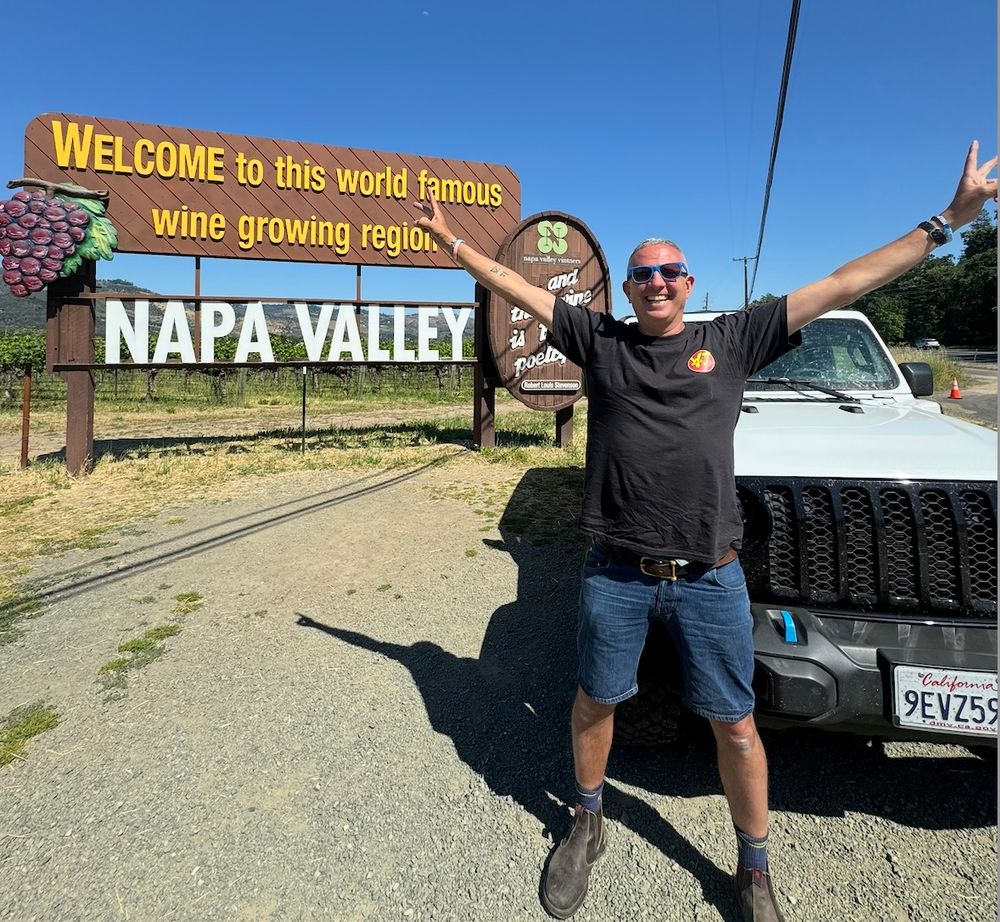
Tim Wildman has the charisma it takes to bring a natural personality to the films
Regenerative viticulture was the biggest eye-opener. In California, we visited three of the world’s leading pioneers - Tablas Creek, Bonterra, and Grgich Hills - and seeing their results firsthand was astounding.
Many in the wine trade are becoming aware of regenerative practices, but it’s slow and early days, so having the opportunity to witness their impact in person - on soil health, vine vigour, grape quality, and overall biodiversity - was a next level, eye popping, brain expanding experience.
It felt like we were documenting a farming revolution in real time, and now we’ve come back from the front line to tell people what we witnessed. There is that sort of level of discovery and excitement.
As one of our interviewees memorably says: “With regenerative farming you’re growing grapes yet you’re increasing the fertility of the soil, that’s the holy grail of farming.”
And the benefits aren’t just limited to the vineyard, from a marketing perspective all our interviewees said there is a considerable difference in how easy regenerative is to communicate to the trade and the consumer compared to, for example, biodynamic viticulture.
Plus, in the US, consumers are seeing the Regenerative Organic Certified (ROC) logo on products that include beef, coffee and chocolate, with the result that it’s breaking through and gaining recognition and traction with consumers in a way that organic labelling has not done in the past. I feel like I’ve seen the future, and I couldn’t be more excited to share what we’ve learned through these films.
What were the biggest challenges pulling the programmes together?
How long have you got? Funding was the first big hurdle. Finding not just willing wineries but the right ones with strong sustainability credentials.
Filming was intense. In the Americas, it was just Ben and me, carrying 80kg of equipment across dozens of flights. Days were long with pre-dawn starts for sunrise shots, scouting locations, setting up interviews, and capturing B-roll to ensure high production values.
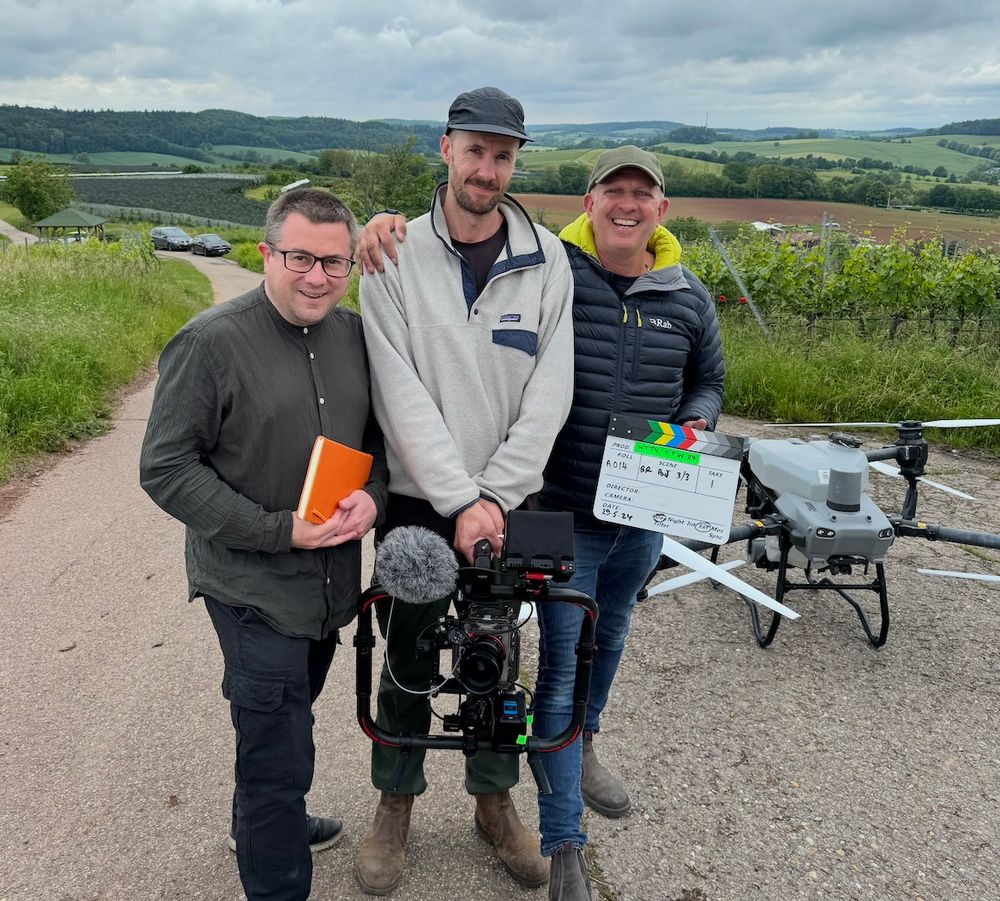
Tim Wildman MW and Ben Dowie were joined by Antony Moss MW in helping to bring the films together
Editing may have been the toughest challenge. We had over 50 hours of raw footage to shape into five cohesive films, a process that took four months of relentless work. Thankfully, we had Antony Moss MW on board as a researcher, he’s one of the smartest guys I know, and his pre-production research and structural input on themes and narrative were invaluable.
There are two of you involved - yourself and filmmaker Ben Dowie - how did you come together
I had worked with Ben pre-Covid on WineTutor.tv films for Villa Maria and Campo Viejo. Since then, he’s worked on Netflix documentaries, specialising in extreme sports. His ability to capture cinematic-quality footage as a one-person crew made him the perfect fit.
Most importantly, we get along well. Given the gruelling travel and shooting schedule, limited resources and tight budget, a strong working relationship (and sense of humour) is essential.
How did you decide where you wanted to go and film?
We took the MW essay approach - showcasing sustainability through the broadest range of countries, climates, grape varieties, and price points.
As well as ticking all these boxes, the wineries we invited to be involved had to be leaders in the area of sustainability practices. We certainly managed to achieve that, from a winery such as Tablas Creek Vineyard in Paso Robles that was selected to be the first winery in the pilot program for the Regenerative Organic Certified (ROC) program, to Famille Perrin in the South of France and their raft of cutting edge sustainability initiatives.
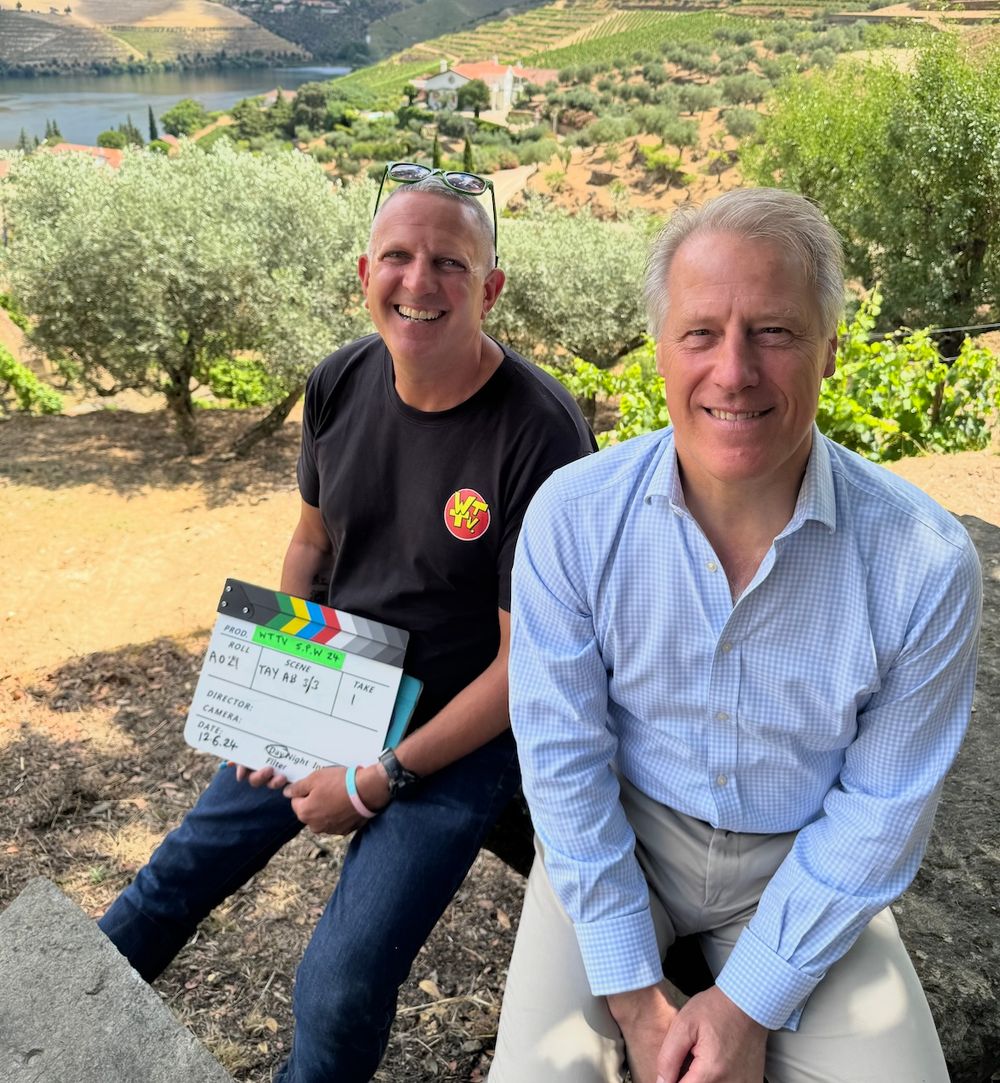
Tim Wildman MW and Adrian Bridge of Taylor's Port - one of the producers involved in making the films and telling their sustainability story
These include the use of alternative packaging for the high volume La Vieille Ferme wines through the new eco-winery at Château de Beaucastel, which is constructed using earth from the estate and employs a series of huge vents to capture the Mistral wind and use it to cool an underground reservoir for winery refrigeration. All the way through to the use of NFTs (non-fungible tokens) for selling Beaucastel en primeur to Taylors Port and its global initiative of environmental best practise information sharing under The Porto Protocol website.
We left no stone unturned and are confident that our 12 wineries represent the cutting edge of environmental and sustainable practices in the world of wine.
How long did it take to make one film and then pull the whole series together?
We planned and shot them as a complete series, so from conception to completion it was just over two years.
The films are of a very high production value - How have you funded the project and what is the business model?
Wineries funded 80%, and I personally covered the rest. Our cinematographer, sound mixer, and researcher were paid full professional rates. I worked for free.
We’ve now launched One Third Films, a production company focused on sustainability and regenerative agriculture across all farming sectors, not just wine.
We’re at a tipping point in the fight against climate change and food security, and regenerative farming is going to play a large part in the solution to challenges as diverse as climate change, biodiversity loss and resource scarcity. We’re excited to be the ones who could help document this movement and communicate these stories to a global audience. Too much of the narrative around climate change is negative, we want to play a part in highlighting the positive stories.
How are you going to distribute the films and promote them?
They’re free to watch on the WineTutor.tv and One Third Films websites.
We’re also submitting Regen Revolution, a standalone film on regenerative viticulture, to the 67 Pall Mall Wine Communicator Awards.
What next for the project and what do you have planned for the next stage?
We’ll use Regen Revolution as a proof-of-concept pitch for a full-length streaming documentary on wine and sustainability, with a budget of £800k–£1m. Think of it as the Kiss the Ground for wine.
How can producers and wine businesses get involved?
If you’re involved in regenerative viticulture, we’d love to hear from you. We’re also open for commercial work under One Third Films from social media ads to corporate films.
Anything else to say?
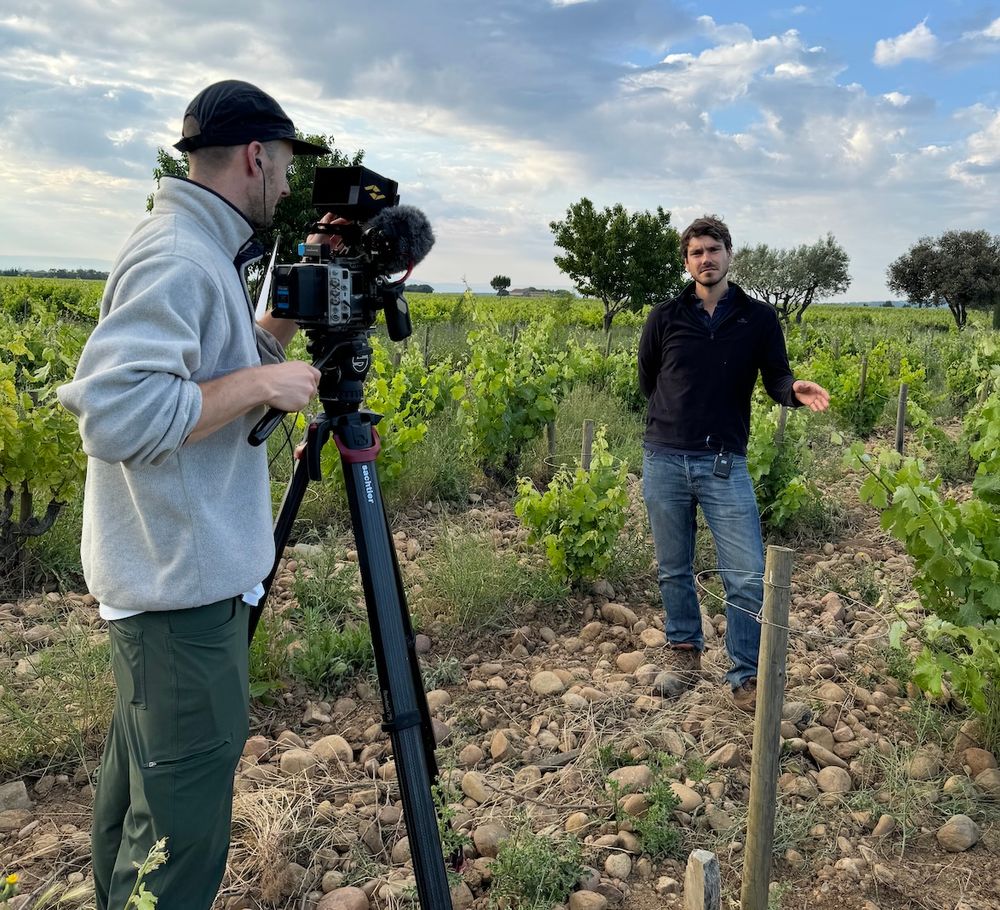
Tim Wildman MW and Ben Dowie hope the films will encourage other producers to work with them to tell their stories
We are at a global inflection point - both in our changing climate and in a generational shift among consumers. The way wine is grown, made and marketed is having to evolve in response.
In the past environmental credentials were a nice-to-have, but based on the direction of travel we’ve seen, in the future - more than trophies from shows or points from critics - a wine’s environmental credentials may serve as it’s most compelling commercial capital.
Globally, organisations like the Sustainable Wine Roundtable (SWR), the Regenerative Viticulture Foundation, and International Wineries for Climate Action are driving real progress. Collaboration on these challenges is bringing wine companies together in a way I have not seen before in my 30 years working in the wine industry, something I witnessed firsthand at the inaugural Sustainability in Drinks event in London in October 2024.
At the heart of these efforts is “intentional optimism,” a concept championed by Hans Rosling and more recently by Hannah Ritchie in Not the End of the World. The scale of the climate crisis can feel overwhelming, and individual efforts may seem insignificant. But solutions exist, and change is possible. With these films, we aim to celebrate best practices, spotlight those seeking better ways forward, and inspire as much as we inform. Wine is uniquely positioned to lead this green revolution—and we hope to be one small pebble that helps start the avalanche.
- You can find out more and watch the films at Wine Tutor TV. Click here.
- You can contact Tim Wildman about the films and any future work through One Third Films at tim@onethirdfilms.studio.
